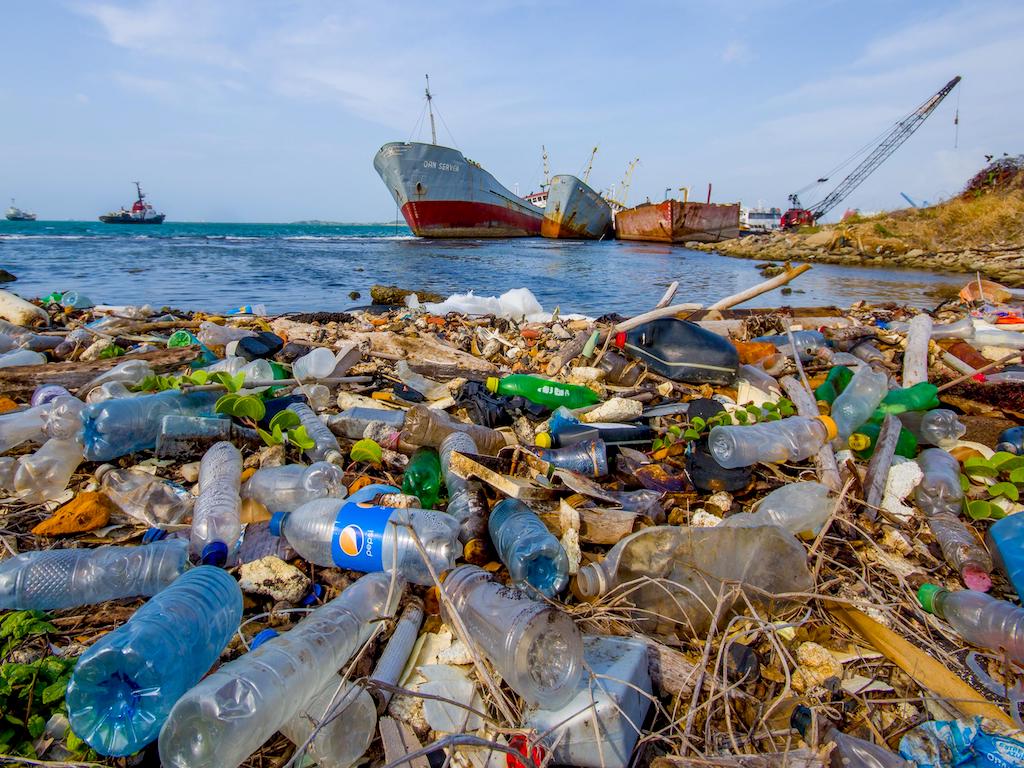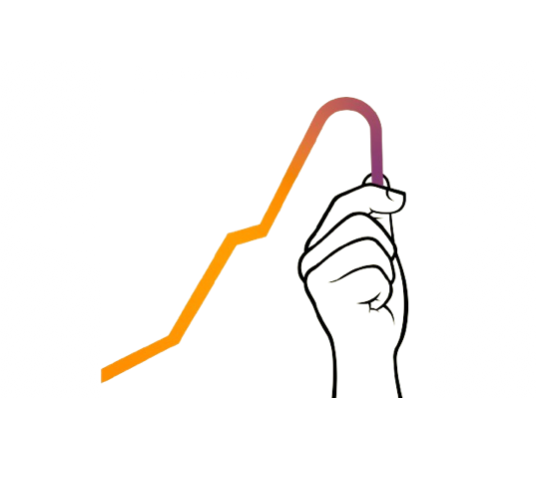It’s nearly impossible to go throughout your day without using plastic. Plastic face wash and shampoo bottles, toothbrushes, and makeup containers greet us in the morning. Plastic-lined paper coffee cups fuel our work day and plastic forks, knives, spoons and plates greet us at lunch. Plastic packaging is tossed in the bin as we unwrap dinner ingredients and plastic helps us scrub our dishes clean when we’re done.
Plastic makes up the tires of our cars, many of the seats we sit on and vital medical devices we rely on. More than 90% plastic is not recycle and it’s estimated to take anywhere from 500 to 1000 year for plastic to break down in landfills. If it isn’t recycled or incinerated, this trash often finds its way into streams, rivers and oceans where animals can’t help but eat plastic, often because it smell like food them.
And it’s not just causing pollution on the ground; the petroleum-based product is also helping to fuel climate change. According to a report published in May, greenhouse gas emissions from plastics production this year will equal the pollution output of nearly 200 coal-fired power plants with a 500-megawatt capacity.
Plastics are out of control. No matter where you go, nations are overwhelmed by it, as one woman who travel to every country on earth can testify. From the bottom of the ocean and inside whales to microplastic-laden water and fresh mountain air, here’s where plastic has wound up in 2020.

Impact of Plastic Waste
- Economic Losses: Plastic waste along shoreline has a negative impact on tourism revenue (creates an aesthetic issue).
- For example, the Andaman and Nicobar Islands, are under the plastic threat and facing the aesthetic issue because of the international dumping of plastic waste at the island.
- Implications for Animals: Plastic wastes have profoundly affected animals in aquatic, marine, and terrestrial ecosystems.
- Plastic ingestion upsets or fills up the digestive systems of the animals thus contributing to their death due to intestinal blockage or starvation.
- Marine animals can also be trapped in plastic waste where they are exposed to predators or starve to death.
- The plastics may also contain toxic chemicals which can harm the animal’s vital organs or biological functions.
- Implications for Human Health: The chemicals leached from the plastics contain compounds, like polybrominated diphenyl ether (anti-androgen), bisphenol A (mimics the natural female hormone estrogen) and phthalates (also known as anti-androgens), impact human health leading to various hormonal and genetic disorders.
- These chemicals can interfere with the functioning of the endocrine system and thyroid hormones and can be very destructive to women of reproductive age and young children.
- Land Pollution: Plastics leach hazardous chemicals on land, resulting in the destruction and decline in quality of the earth’s land surfaces in term of use, landscape and ability to support life forms.
- Air Pollution: Plastic burning releases poisonous chemicals into the atmosphere impacting general well-being and causing respiratory disorders in living beings.
- Groundwater Pollution: Whenever plastics are dumped in landfills, the hazardous chemicals present in them seep underground when it rains. The leaching chemicals and toxic elements infiltrate into the aquifers and water table, indirectly affecting groundwater quality.
- Water Pollution: Many lakes and oceans have reported alarming cases of plastic debris floating on water surfaces, affecting a great number of aquatic creatures. It leads to dreadful consequences to marine creatures that swallow the toxic chemicals. In 2014, United Nation report estimated the annual impact of plastic pollution on oceans at US$ 13 billion.
- Interference with the Food Chain: Studies determine that the chemicals affect the biological and reproduction process resulting in reduced numbers of offspring thus disrupting the food chain.
- When the smaller animals (planktons, mollusks, worms, fishes, insects, and amphibians) are intoxicated by ingesting plastic, they are passed on to the larger animals disrupting the interrelated connections within the food chain.
- Poor Drainage: Drainage system clogged with plastic bags, films, and other plastic items, causes flooding.
- Impact on Habitats: Seafloor plastic waste sheets could act like a blanket, inhibiting gas exchange and leading to anoxia or hypoxia (low oxygen levels) in the aquatic system, which in turn can adversely affect the marine life.
- Invasive Species: Plastic waste can also be a mode of transport for species, potentially increasing the range of certain marine organisms or introducing species into an environment where they were previously absent. This, in turn, can cause subsequent changes in the ecosystem of the region.
Conclusion
Now the time came we have to stop use of plastic because it will destroy our present, past as well as our future. If we don’t take step toward its it will destroy our whole thing as we see in current era.

